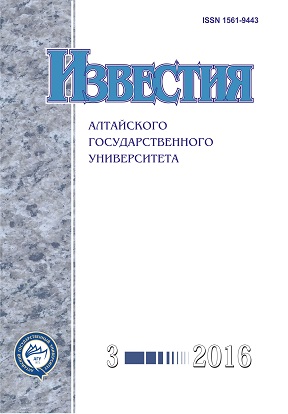Vigilante Justice in the Peasants’ Legal Mode of Life
Abstract
The article analyses the nature of the Russian peasant community as a system forming element in the history of a home state and national law. Further, the article covers various aspects of the phenomenon of vigilante justice in the Russian customary law. Vigilante justice is defined as an integral part of the customary law and order which is not subject to formalization by positive law remedies. Vigilante justice was rendered by peasants with regard to various case categories. As a rule, these categories included theft (horse stealing, specifically), adultery, insult, contempt of the community and the Church, and land disputes. Neither did customary law and order imply any formalization of the system of punishment for judgable misdeeds. Punishment might vary from apology enforcement to putting to death. It also might acquire some curious forms, for example, spending a part of the offender’s property on drink by the entire community, public repentance, etc. In this context, punishment assumed a character of requital, but not of revenge. Responding revenge by the punished person was practically impossible in such circumstances as the offender was accused and convicted, however, the punishment was performed by efforts of the entire community. Punishment was implemented by all villagers including children. Children’s participating in the acts of vigilante justice was an important form of socialization.DOI 10.14258/izvasu(2016)3-04
Downloads
Metrics
References
Уголовный кодекс Российской Федерации : Федеральный закон от 13.06.1996 № 63-ФЗ // Собрание законодательства РФ. - 1996. - № 25. - Ст. 2954.
Мисроков З.Х. Адат и Шариат в российской правовой системе: исторические судьбы юридического плюрализма на Северном Кавказе. - М., 2002.
Тенишев В.В. Правосудие в русском крестьянском быту. - М., 1907 (М., 2011).
Бердинских В.А. Русская деревня: быт и нравы. - М., 2013.
Смирнов А.М. Самосуд как социально-культурный феномен крестьянской общины в эпоху Российской империи // История государства и права. - 2013. - № 10.
Шатковская Т.В. Социальные функции института наказания в обычно-правовой системе российских крестьян периода империи // История государства и права. - 2014. - № 21.
Безгин В.Б. Крестьянский самосуд и семейная расправа (насилие в жизни русской деревни конца XIX - начала XX в.) // Вопросы истории. - 2005. - № 3.
Смирнов А.М. Самосуд над ведьмами и колдунами в России // История государства и права. - 2015. - № 7.
Izvestiya of Altai State University is a golden publisher, as we allow self-archiving, but most importantly we are fully transparent about your rights.
Authors may present and discuss their findings ahead of publication: at biological or scientific conferences, on preprint servers, in public databases, and in blogs, wikis, tweets, and other informal communication channels.
Izvestiya of Altai State University allows authors to deposit manuscripts (currently under review or those for intended submission to Izvestiya of Altai State University) in non-commercial, pre-print servers such as ArXiv.
Authors who publish with this journal agree to the following terms:
- Authors retain copyright and grant the journal right of first publication with the work simultaneously licensed under a Creative Commons Attribution License (CC BY 4.0) that allows others to share the work with an acknowledgement of the work's authorship and initial publication in this journal.
- Authors are able to enter into separate, additional contractual arrangements for the non-exclusive distribution of the journal's published version of the work (e.g., post it to an institutional repository or publish it in a book), with an acknowledgement of its initial publication in this journal.
- Authors are permitted and encouraged to post their work online (e.g., in institutional repositories or on their website) prior to and during the submission process, as it can lead to productive exchanges, as well as earlier and greater citation of published work (See The Effect of Open Access).








